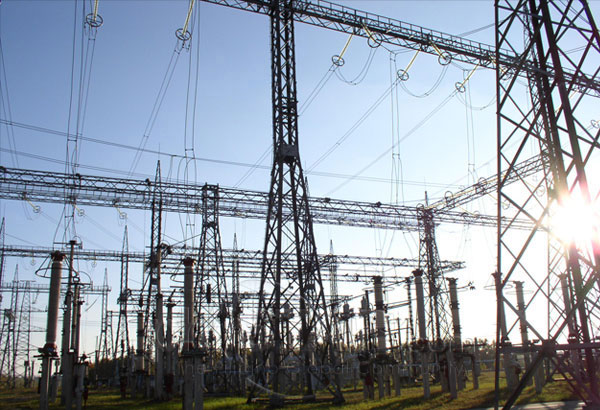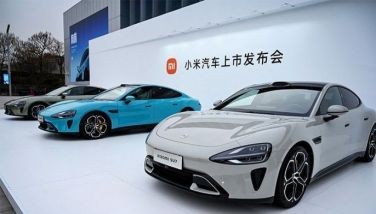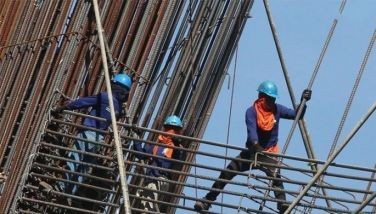Half a world away

In recent columns, I wrote about the top foreign diplomats currently representing their countries in the Philippines. I hope you were able to know more about the sitting ambassadors of countries we have friendly relations with in my past columns. Let me add one of the latest interviews which we had, this time with the Ambassador of Brazil to the Philippines Rodrigo Do Amoral Souza.
Ambassador Souza was born in Sao Paolo, the largest city in Brazil and lived his childhood there with his parents. He was raised in a middle class family and fondly remembers a normal, middle class life with his family. He studied in Sao Paolo and took up Business Administration in a renowned business school in Sao Paolo. He only left his home town when he passed the entrance exam that marked the start of his career in foreign service.
Actually, Ambassador Souza remembers being undecided about his career path after high school. He took up a business course and started working as a junior trainee in one of the largest supermarket chains in Sao Paolo, but his heart wasn’t in it. His interests were always in history, foreign languages and foreign culture in general. One fateful day, there was a big ad in the newspaper about a government bid for applications in the diplomatic service, and this got him thinking hard. It wasn’t until a year later, and after some informal research on the matter, that he took the entrance test and passed it on his first try.
He entered the diplomatic service in 1981. During that time, those who wished to enter the service had to study for two years in a diplomatic academy, and by the end of 1983, he started working as a junior diplomat. Four years later, he was posted in Buenos Aires, Argentina as steward to the foreign secretary. Then he was off to Santiago, Chile as First Secretary and onwards to Rome till the end of 2003 as counselor.
He was sent back home to Brazil and spent 12 consecutive years in his native country. He says this was rather unusual for a diplomat, but for personal reasons, he decided stayed and enjoyed his long stay in Brazil.
The Philippines is only his fourth assignment and his first as a full-ranked ambassador. He arrived here about 14 months ago, in January 2016. Previous to his Philippine posting, he worked as director for immigration and legal affairs at the Foreign Ministry in Brazil.
All appointed ambassadors in Brazil had to undergo a confirmation hearing at their Senate where the Foreign Service Commission had to give its approval. He remembers having to prepare well for this confirmation hearing and contacted the Philippine Embassy in Brazil. The Philippine ambassador graciously lent him videos and books about the Philippines, and the embassy staff likewise was very helpful to him. This was his first inkling of how hospitable Filipinos can be, and as soon as he arrived in the Philippines this impression was quickly validated. He made friends easily and this, he concluded, makes his job here as ambassador very easy.
Our bilateral trade with Brazil peaked in 2014 when total trade amounted to $1 billion. However, after 2014, trade decreased as exports from Brazil to the Philippines decreased because of the severe recession in Brazil that lasted for two years. Now, the amiable ambassador is working doubly hard to identify the areas with the most potential for new investments and improved trade between our two countries.
Ambassador Souza awaiting the arrival of a very important business delegation from Brazil in mid-July. The delegation will be headed by the governor of one of the main agricultural exporters in his country. Brazil is also participating in the bidding for six new aircrafts which the Philippines needs. He hopes Brazil’s top aircraft manufacturer will be a successful bidder here.
Between Brazil and the Philippines, we have a time difference of 11 hours, which should give you an idea of how far this country is. If you check the globe, Brazil is exactly on the opposite side of where the Philippines is, and as Ambassador Souza himself said, it takes one and a half days to travel from Brazil to the Philippines, so we do not have too many Brazilian tourists coming our way and not too many Brazilians living or studying here either.
I actually took that trip with my family last year and yes, the trip took so long indeed. This is why they do not have too many Filipino tourists in Brazil either. While Filipinos can be found anywhere in the world, the Filipino community in Brazil is significantly small—in fact we never encountered a Filipino OFW or tourist when we were there. Last year, less than 20,000 Brazilian tourists arrived in the country, though Brazilians do not need visas to come here. There is a need for an improved tourism campaign so that Brazilians can differentiate between the Philippines and our neighbors Thailand, Indonesia and Malaysia, just like Filipino tourists can differentiate Brazil from its neighbors Chile and Argentina.
Ambassador Souza says that there is clearly a need to know more about each other’s culture, but Brazilians and Filipinos share pretty much the same values about family and religion.
On sports, Brazil is a sports-crazy nation. It hosted the Soccer World Cup in 2014 and the Olympics last year. Football remains the most popular sport, and it is almost like a religion in Brazil, Ambassador Souza said. In contrast, he noted that the development of football in the Philippines remains at an amateur stage. Brazil has been sending coaches to the Philippines and participated in some local and regional competitions in volleyball. He personally thinks that football is most suited to Filipinos because the sport does not require height and heft, just talent. The world’s best player who hails from Argentina is not tall, and so are many others in the top league. He is quick to admit though that the Philippines remains as basketball-crazy as it has always been since decades ago. He remembers that in the ’50s and ’60s, football was so popular here until basketball overtook it. In Brazil, he said, they use football as a tool for social inclusion with so many programs for young Brazilians to learn values like discipline, respect and team work.
Ambassadr Souza has visited Cebu, Davao, Batangas, Vigan. He loved El Nido in Palawan and hopes to bring his son there when he comes to visit.
Mabuhay!!! Be proud to be a Filipino.
For comments (email) [email protected]
- Latest
- Trending






























